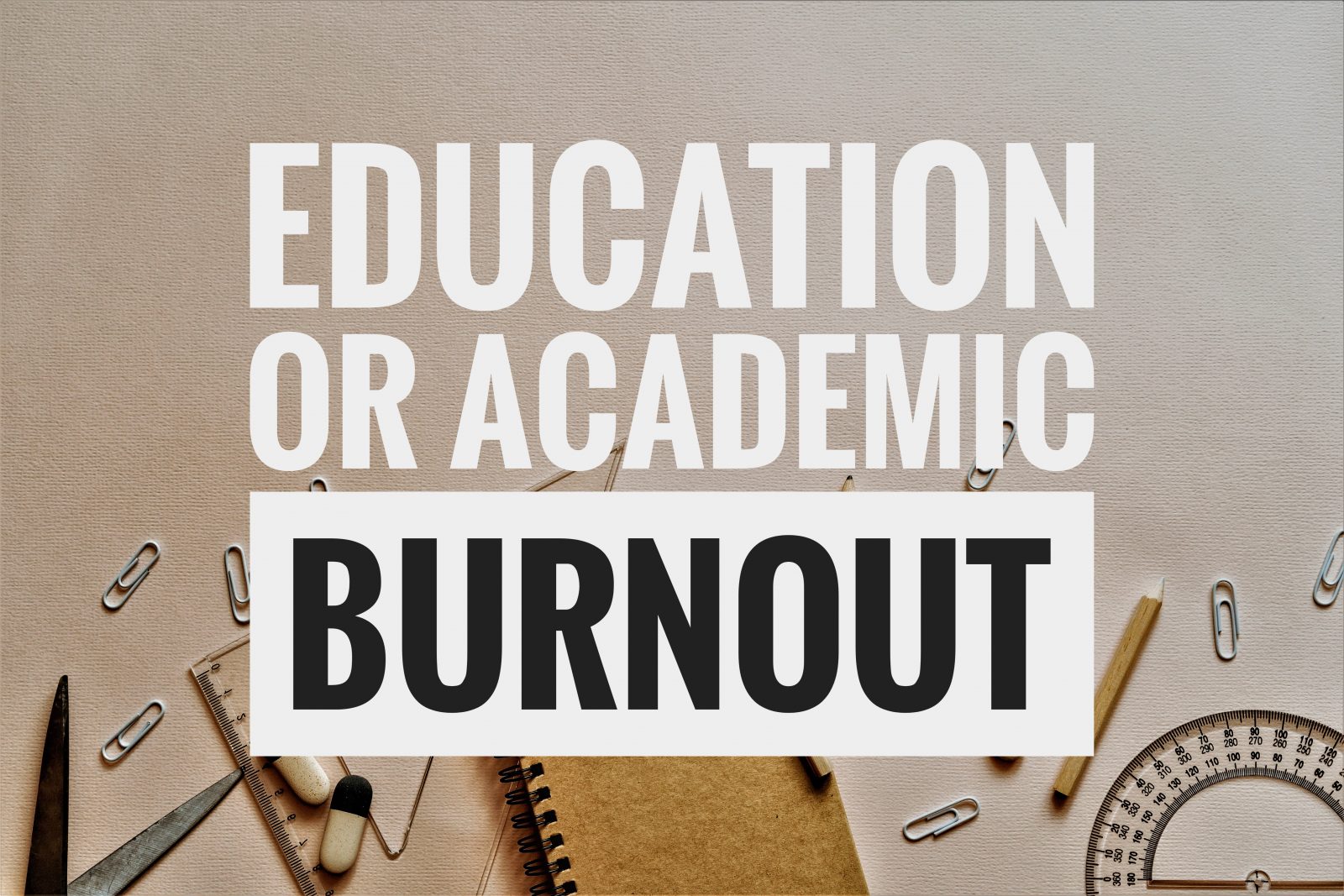Have you ever thought about why you don’t like studying anymore? I mean, let’s agree to the point that not all of us are passionate about studying. But we all liked studying at some point in our life. Some of us were even bullied for liking it. But why does it feel exhausting now? Why does it make you feel tired and annoyed? Up until recently, I couldn’t figure this question out. And when I figured it out, guess what I found? Turns out education can cause burnout.
What is burnout?
Before starting on academic or education burnout, let’s have a peek at burnout. It’s a type of exhaustion that can be emotional, mental, and physical. It can occur due to stress, imbalanced work-life, chaotic environment, and many other physical and emotional causes. There are five stages of burnout– the honeymoon phase, the onset of stress, chronic stress, burnout, and habitual burnout. The common symptoms of burnout are- anxiety, fatigue, inability to focus, lower productivity behavioural changes, feeling empty inside, and so forth.
Academic or Education Burnout
It is the gloomy mental, emotional and physical state that occurs due to chronic stress and continuous study sessions. This can cause a lack of motivation, exhaustion, both psychological and physical, frustration, etc. It is not something that takes place overnight; rather, it is more of a chronic state due to prolonged and stressful study environments.

Causes of Education Burnout
In its National College Health Assessment 2019, the American College Health Association found that more than 30% of college students get negatively affected due to stress. It also showed that 80% of them feel overwhelmed due to the things they have to do. And 40% of them dealt with severe depression which made it difficult for them to even function. These statistics might take a huge leap in 2020’s survey due to Covid- 19.

Education or academic burnout happens mostly due to the excessive load of student work. We live in a world where fresh graduates are expected to have a minimum of 3 years experience. To meet these unrealistic expectations, students need to continuously juggle between study, internships/ part- times, extracurriculars, and social life. And while maintaining all these, they forget to balance between the things that keep them sane. Things such as- sleep, food, hydration, alone time, etc. And when this imbalanced cycle keeps going for a longer period, it causes burnout.

Another prominent reason for education causing burnout is not being able to study one’s preferred subject. Our previous generation has built this pyramid which says some professions are less or more respectful than others. And not just that, in order to achieve a “respectful position” in society, we should pursue this pyramid while choosing subjects even though our heart begs for something else. This is another reason for academic burnout. Since you are not doing this willingly, it’s stressing you. Ultimately, making you exhausted and demotivated towards life.
Signs of Academic Burnout
Academic burnout can show both physical, mental, and emotional signs. The physical signs are mostly shortness of breath, fatigue, insomnia, lack of appetite, and so forth. The mental and emotional signals of education burnout can be- exhaustion, anxiety, lack of motivation, detachment. And if you are facing extreme burnout due to academic pressure, it can lead you to depression as well.

How to Recover from Education Burnout
There are a few ways to recover from education burnout if you think you are experiencing it. First and foremost, you need to figure out what is triggering your stress. You can make a list of your stress factors.

Secondly, you need to ask for help. It can be your family, friends, or someone professional. Always remember there is no shame in asking for help. Third, learn to say no. You might think a no can close so many doors of opportunity for you. But it will open the door of fresh air and that, my friend, will help you to live.

Fourth, take breaks. Go for a walk, take a long shower, do some breathing exercise, take a nap. In return, all these will make you more productive. There is a saying that “study smart, not hard”. This is the last tip from us. Find ways that can help you to study without exhausting yourself. It’s not impossible, you know.
How to Prevent Academic Burnout
If you are showing the early signs of education burnout. Or, if you are trying to prevent it before it touches you, here are some things to remember.

First of all, make some room for healthy changes. For example, include exercise, meditation, and breathing exercises in your routine, make meal plans, learn stress and anger management, find a routine that balances your work and life.

Then, plan out your day and set goals reasonably. The important thing to remember about planning is, your day might not go as you planned, but it always gives you a rough sketch. Lastly, learn time management and try to avoid procrastination. These two are some of the most important life skills that you must learn. Keep track of your assignments, homework and start working on them early so that it can’t stress you out in the end.
To avoid procrastination, you can use this hack-
Like many other psychological and emotional health issues, we tend to believe that there is no such thing as education burnout. But education can cause burnout, and it actually can tear you into pieces. Often, we fail to figure out what is making us so tired and drained but fail. Just because we don’t acknowledge this severe issue. We hope you will learn to say no and take breaks when it’s necessary. Recognize your boundaries, and don’t ever shy away from seeking help.
Lastly, we would like to say treat your classmates and friends kindly. Try to find a way to help if you feel someone is drowning. We don’t know who is going through what.
Subscribe to our Newsletter!

























Relating so hard!